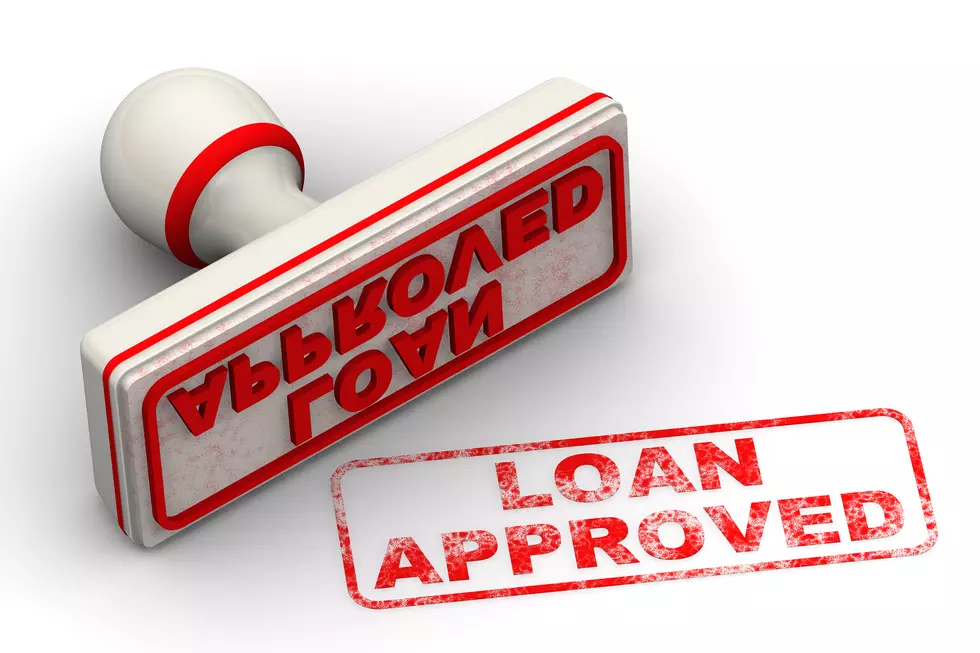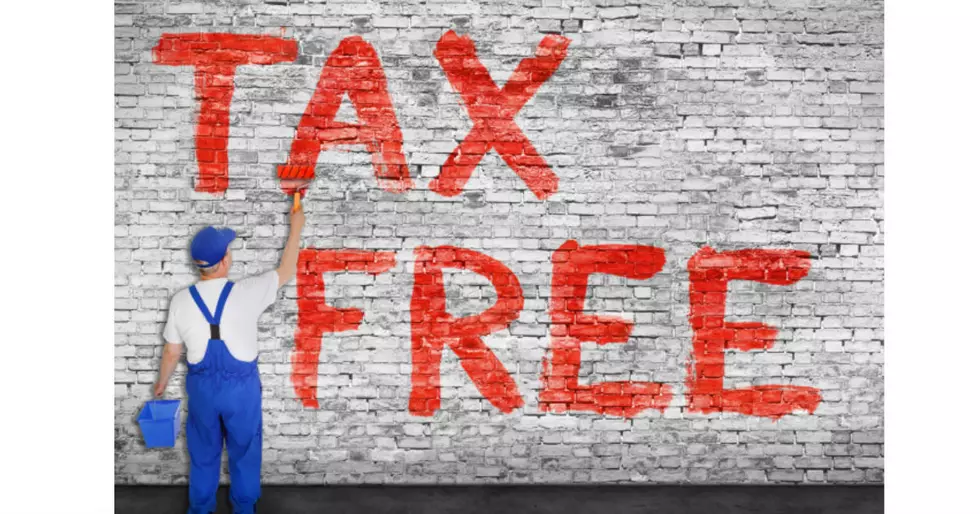
Living Off The Working Poor
As part of our ongoing series examining the Lake Area economy, let’s take a minute to look at a few interesting ways to measure economic health that we don’t tend to hear about all that often.
We hear about statistics all the time, because they're easy to manipulate and present with whatever spin you want. For example, people can talk about how great the job growth is in Lake Charles, but what they tend to leave out is how the majority of those jobs are temporary, and most of what's left are low to minimum wage positions.
One way to get around this sort of statistical bias is to ignore statistics altogether like we're ditching 3rd period algebra, and look at more concrete, real-world examples that don't rely on putting a slick PR spin on a bunch of boring spreadsheets and data tables.
There are a few types of businesses that tend to thrive in a bad economy because they capitalize on people who are struggling to make ends meet. It stands to reason that a community with a large number of these businesses relative to its size must have enough struggling people to support them, otherwise there wouldn’t be enough repeat business to keep them going.
In short, areas with a healthy economy tend to have a lot of places to spend money, such as commercial and recreational centers, while areas with a poor economy tend to have more places that lend money, such as payday and title loan companies.
Payday and title loan businesses thrive in poor economic areas because they profit by making short-term loans at high interest rates to the working poor, who sometimes need fast cash in a hurry. For those of us working stiffs who are one flat tire away from financial ruin, we'll do whatever we need to in order to get the money to buy a new tire, just so we can get to work and continue earning barely enough money to keep scraping by.
There are dozens of Payday and Title Loan businesses in the Lake Charles Metro Area. Dozens. To put that into perspective, we only have six McDonald’s, five Taco Bells, and a handful of Wendy’s, all of which combined don’t come close to the number of Payday and Title Loan businesses we have here. Would you like fries or a 400% interest rate with that?
To add insult to injury, many payday loan businesses might operate locally, but they actually siphon money out of the community by filtering their profits into some of the nation’s wealthiest banks, leaving the local economy even more depressed. Which is kind of depressing, so try not to dwell on it too much.
That said, they do provide a needed service. After all, when you’re faced with not being able to get to work because of that flat tire, losing your job will cost you a whole lot more than paying the high interest rate on a payday loan will, even if it means eating nothing but beans on toast and off-brand Pop-Tarts for a few weeks.
Judgement of their business model aside, their existence depends on the working poor, so their heavy presence in our area indicates a struggling economy.
Another business to look out for are places that provide check cashing services, which is something that a lot of payday loan offices also provide - for a price.
People in desperate financial hardship often can’t afford the fees associated with maintaining a bank account, so they turn to check cashing businesses who they can pay to turn their paychecks into usable cash. The more of these that there are, the worse the area economy tends to be doing, because people working jobs that pay a livable wage are usually able to live the high life by doing extravagant things like paying checking fees and maintaining minimum balance requirements.
However, when you're living paycheck-to-paycheck with as much (or more) going out each month as you've got coming in, maintaining a minimum balance can be difficult, if not impossible. (Not to mention getting slapped with an overdraft fee for that gas station burrito you bought on the way to work because you ran out of Toast-Em Pop-Ups last night after the dollar store closed.)
Pawn Shops are another, slightly less obvious, but still important economic indicator. It's important to note that pawn shops aren't considered predatory lenders, because they're not. A lot of people use pawn shops to simply make a few bucks off of something they’d otherwise throw away or wait to stick in a yard sale, which aren’t typical indicators of economic distress.
However, many people do turn to pawn shops as a more attractive alternative (or supplement) to payday and title loans. A pawn shop can always be counted on to give you some amount of cash for your possessions, as long as they’re in decent shape and worth a buck or two - so many people use them for fast cash in difficult situations, often hoping to reclaim their property before it’s sold.
We have eight pawn shops in our area, and they’re great places to find good deals on nice stuff, if you’re looking to buy something. I've bought a lot of great things from pawn shops over the years, from laptop computers to the power drill I use whenever I feel like trying to convince my wife I can actually fix things around the house like a real man. (Spoiler: I can't.)
Pawn shops aren’t exploitative by nature like some other businesses that thrive in depressed economies, since their rules are up front and clear, and usually very reasonable. Still, if there weren’t enough people needing fast cash (and not reclaiming their property) in the area, there wouldn’t be enough product to support eight of them, so their presence is still significant.
We also have a dozen or so debt collection agencies and repossession companies here, which exist solely to collect on delinquent debt, which is a pretty good indicator that there's a problem. After all, if people were able to pay their car notes, we wouldn't need so many repo men. Therefore, the number of debt collection agencies an area can sustain is directly proportional to the number of people who can’t pay their debts, which tends to happen in unhealthy economies with a high cost of living and low-wage employment.
A high number of “No credit? Don’t sweat it!” type lenders (that don't at least check for minimal income) are also a sure sign of a poor economy, since they run off a business model that profits from making high interest loans available to people who can’t really afford to finance whatever it is they’re buying, then they repossess the item when the loan gets delinquent, just so they can turn around and sell it again using the same practices.
A single high value item purchased with this kind of shady financing can easily go through dozens of temporary owners who can't afford the payments, all of whom feed the finance company with down payments and as many installments as they can afford before the item is inevitably repossessed and passed on to the next guy who walks in the door with bad credit and a dream.
In contrast to all this, let’s look at the richest city in America, as identified by Time.com: McLean, Virginia. You know how many Payday and Title Loan businesses you’ll find there? Zero. Pawn shops? Zero. Debt collection and repossession agencies? Also zero.
That’s not to say that any of these businesses are bad, per se. They all provide a needed service to parts of the community. However, their increased presence in the Lake Area shows that a significant number of people here routinely face financial hardship, usually during the couple of weeks between when their last meager paycheck came in and all their money went out. (Which is usually the same day.)
The amount of these businesses relative to the size of our community are good, tangible examples to look at in order to gauge how our economy is truly doing.
And we're not doing so great.
We're not even going to go into the latest untapped economic thermometer: fundraising websites. A quick search of GoFundMe alone shows a virtually endless amount of active, local campaigns asking for help with everything from medical expenses and funeral costs, to covering the monthly rent and keeping the lights on. We stopped counting at 138, with plenty more results to go.
People are struggling.
Next week, we'll look at some possible solutions to some of the problems facing our area, and we'd love to hear your ideas. Leave us a comment and let us know what you think.
More From Gator 99.5








![No, Developing The Lakefront Is Not Worth Raising Our Taxes – [OPINION]](http://townsquare.media/site/159/files/2017/04/lakefront-tax-featured-image.png?w=980&q=75)
